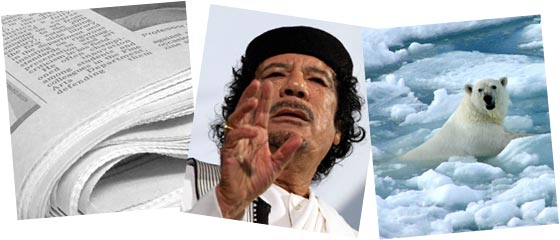 ![[Header]](../XuShared2/Line3.jpeg)

Add a Comment (Go Up to OJB's Blog Page) Person of the Year 2010Entry 1259, on 2011-01-05 at 20:29:22 (Rating 3, News) In my last blog entry I said that rehashing the past year wasn't that interesting but I like to contradict myself, at least on subjective matters such as this, so I am going to comment on an issue from the past year after all.
The subject is the "Person of the Year". There are three potential and actual winners I want to comment on: Steve Jobs (CEO and co-founder of Apple), Julian Assange (internet activist and editor in chief for WikiLeaks), and Mark Zuckerberg (CEO and co-founder of Facebook). Time magazine named Zuckerberg as their person of the year even though Assange was well ahead in the popular vote. Jobs was named person of the year by Britain's Financial Times last week. So all three of my candidates got some recognition and all deserved it to some extent.
I'm actually not that impressed with Zuckerberg. Sure, Facebook is outrageously successful but it's really not that great an achievement. There were plenty of good social networking sites around a long time before Facebook (at least that's the way I remember it because I haven't used many of them for years) and they weren't significantly different from Facebook.
On the other hand there is more to creating a successful web-based service than just the technical excellence of the coding and credit is due to the Facebook team (and especially to Zuckerberg's leadership) in creating something that people find useful and want to use. He has also made several philanthropic contributions, including having a connection with The Giving Pledge (although some people have suggested there was a self-centered purpose behind these contributions).
Of course, Assange is a far more controversial figure. People who know anything about Wikileaks tend to be polarised in their opinions (that in itself is significant because important new phenomena often attract varied support). I know people who think Assange is the greatest saviour of democracy the world has seen in recent times and others who think he is a criminal and terrorist who should be assassinated. Wow! He's certainly succeeded in gaining attention if nothing else!
Maybe if a magazine like Time, which is really part of the conventional establishment, had made him person of the year it would not have enhanced his reputation. Assange works on the periphery of society so an endorsement from that same society would have been ironic to say the least.
So what about good old Steve? Anyone who reads this blog will know I am an Apple fan and there's no doubt that most of Apple's success can be connected with Job's abilities to create products which people want to use and his extraordinary attention to detail.
Job's major success in 2010 was the introduction of the iPad. That one product created a whole new type of device because previous attempts at tablets were pitifully inept. Just running the same horrible operating system (Windows) on a computer with a small screen and adding some badly designed touch features doesn't make a tablet. Again this shows how Apple differs from the other big computer companies: only Apple do things properly instead of taking the easy and cheap route of simply adapting technology which already works poorly.
If I was giving out a person of the year award it would definitely go to Assange because he has created the biggest impact on the world as a whole. He used technology to do this but his influence goes away beyond technology.
Jobs would be second because he showed everybody (yet again) how to create a new product category. His past record is impressive: first he showed us how to create a hobby computer (the Apple II), then a useable personal computer (the Mac), then a music player (the iPod), then a smart phone (the iPhone) and now a tablet (the iPad). It really does show an extraordinary and unmatched history of true innovation.
Zuckerberg would be a distant last because he just copied what everyone else was already doing. He took no real risks, he demonstrated little real innovation, and he was really just lucky to be in the right place at the right time. I agree that Facebook is a hugely influential service but it's nothing really revolutionary and I don't think Zuckerberg would have been Time's winner without the publicity generated by the movie about him.
One final point: it's interesting that all three people here are "technology geeks" rather than political figures or business people (although that aspect of their work is also relevant). When President Obama congratulated Jobs and specifically quoted Apple as being a case of where capitalism has worked I think he missed the point: it's the technology that makes the difference and capitalism is just the way people are forced to deliver it.
 There are no comments for this entry. 
You can leave comments about this entry using this form. To add a comment: enter a name and email (both optional), type the number shown above, enter a comment, then click Add.
Note that you can leave the name blank if you want to remain anonymous.
Enter your email address to receive notifications of replies and updates to this entry.
The comment should appear immediately because the authorisation system is currently inactive.
![[Comments]](../XuShared/Comment1B.jpeg) ![[Preview]](../XuShared/Comment6B.jpeg) ![[Blog]](../XuShared/Up2B.jpeg)
|

![[Comments]](../XuShared/Comment1B.jpeg)
![[Preview]](../XuShared/Comment6B.jpeg)
![[Blog]](../XuShared/Up2B.jpeg)